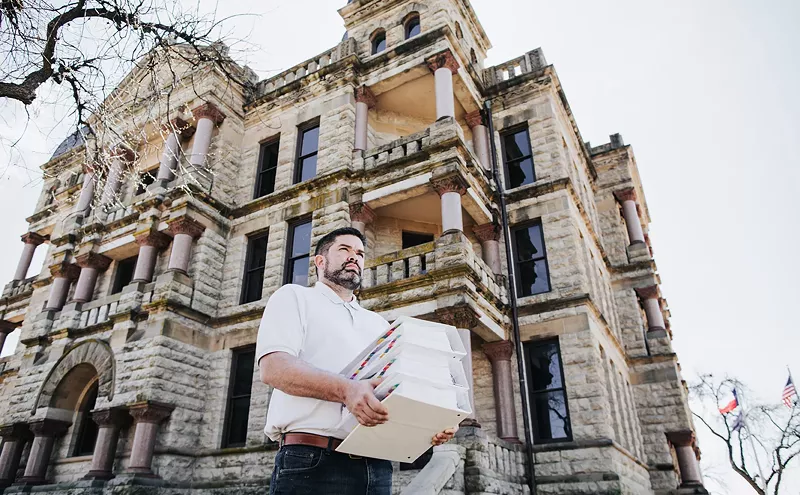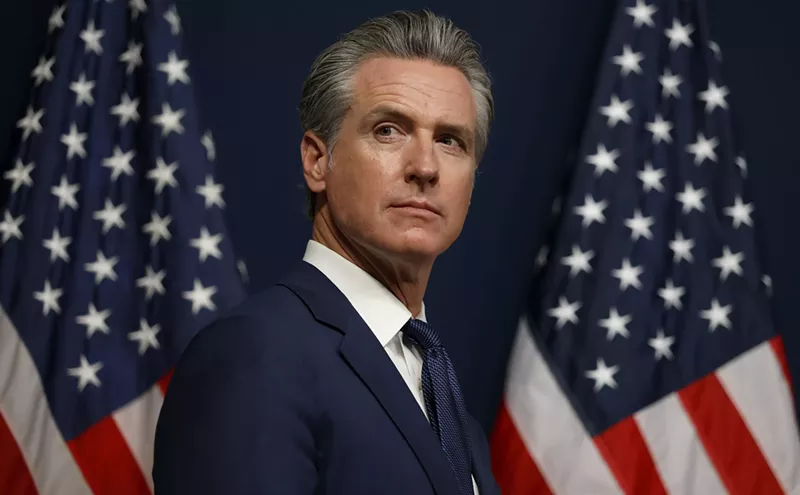Texas' Child Protective Services is in crisis. In the wake of the brutal, March 13 death of 4-year-old Leilana Wright in Grand Prairie, a parade of news report have documented that the agency, through some mixture of incompetence and an acute staffing shortage, is fundamentally incapable, as currently organized, of doing its job and protecting the state's children.
This happens from time to time. A child is killed. CPS caseworkers, it comes out, missed clear evidence of horrific abuse, or else they never got around to responding in the first place. The public gasps in horror at the ricketiness of the system. Heads roll. Policies are tweaked. The system is patched up. Then, as the dead child fades from the public memory, it is ignored until the next grisly death. Earlier this year, the New Yorker's Jill Lepore examined how the child welfare system in Massachusetts (though it could be any state) has been lurching from crisis to crisis for decades. This cycle — crisis followed by a hasty reform followed by crisis — is no way to run any organization, much less one as vital as CPS.
On one level, building a properly functioning CPS is incredibly hard. It's hard to strike the proper balance between parents' right to raise their kids without undue state intervention and the state's interest in protecting kids from physical emotional mistreatment. It's hard claw adequate funding from a perennially strained state budget. It's hard to play a long game in a political system that responds more readily to intense upwellings of public outrage than to calm recitations of evidence and reason.
On another, more conceptual level, however, fixing CPS is easy. At its core, CPS has a staffing problem. To function properly, it needs an adequate supply of front-line caseworkers and supervisors, and those caseworkers and supervisors need to be well-trained and experienced. The fraught situations they are thrust into require quick, sound judgments that fresh-faced college grads, no matter how smart or well-meaning, are ill-equipped to make.
The organization chews up and spits out young caseworkers at an astounding rate. In the Dallas area, the average caseworker now lasts about six months. At that rate of turnover, it's a challenge just to staff the agency with warm bodies.
The reason, says Will Francis, government relations director for the National Association of Social Workers Texas, is fairly simple. "We don't necessarily value the workers themselves, but we ask them to do these really, really hard jobs," he says.
It's similar to the dynamic with public-school teachers. Society dumps all manner of deep-rooted social ills in their classrooms and holds them responsible for fixing them, all the while paying and treating them like the help.
Francis thinks Texas needs to take steps to professionalize CPS work. He thinks the state should focus on pulling workers from fields like social work and psychology, whose practitioners have on-the-ground experience in the issues and institutions child welfare cases intersect with. He also thinks colleges and universities should have programs specifically to train CPS workers, which would yield a better prepared workforce and offset some of the agency's training costs.
Francis has heard that the Department of Family and Protective Services, which oversees CPS, is considering relaxing the requirement that caseworkers have a 4-year college degree as triage for staffing and retention problems. But Francis thinks this is wrong-headed, since it will further deprofessionalize child welfare work and won't address the factors leading to high turnover.
In addition to policy tweaks, CPS needs more money for salaries. An extra $15,000 per year for caseworkers won't change the nature of the job. It would still be stressful and emotionally draining, it would still require long and unpredictable hours. But a better salary would go a long way to professionalizing CPS work, improving the state's ability to recruit qualified candidates and hang onto them after six months. The current starting salary, $33,000, is about what a cashier makes at Costco.
Francis has crunched numbers on what it would take to raise CPS salary to a level more commensurate with the job's importance. "You're almost looking at almost $400 million," he says. Every year. Maybe more.
That's a lot of money, particularly in a state as famously tightfisted Texas. The magnitude of the necessary investment is why politicians like Governor Greg Abbott forcefully declare that the "status quo at CPS is unacceptable" while conspicuously avoiding much discussion of dollars. Even in response to dying children, a $400 million per year funding boost is unrealistic, pie-in-the-sky, loony tunes stuff, right?
Not quite. Recent history has shown that the Texas Legislature is perfectly capable of responding to perceived crises with massive infusions of cash.
In fact, it did exactly that last year when it approved a surge in Department of Public Safety personnel along the Mexican border. The price tag, coincidentally enough, was $800 million over two years, or almost exactly what Francis thinks would be necessary to professionalize the front line of CPS.
The CPS crisis is real. Kids are dying. Others are suffering. Those rescued from abusive situations frequently find themselves sleeping in CPS offices. Then again, deserve doesn't carry much weight in Austin."The border is a sexy political issue," Francis says. "It's easy to say i'm tough on the border...CPS doesn't always pull the votes."

Audio By Carbonatix
[
{
"name": "GPT - Billboard - Slot Inline - Content - Labeled - No Desktop",
"component": "21721571",
"insertPoint": "2",
"requiredCountToDisplay": "2"
},{
"name": "STN Player - Float - Mobile Only ",
"component": "21861991",
"insertPoint": "2",
"requiredCountToDisplay": "2"
},{
"name": "Editor Picks",
"component": "17105533",
"insertPoint": "4",
"requiredCountToDisplay": "1"
},{
"name": "Inline Links",
"component": "18349797",
"insertPoint": "8th",
"startingPoint": 8,
"requiredCountToDisplay": "7",
"maxInsertions": 25
},{
"name": "GPT - 2x Rectangles Desktop, Tower on Mobile - Labeled",
"component": "22608066",
"insertPoint": "8th",
"startingPoint": 8,
"requiredCountToDisplay": "7",
"maxInsertions": 25
},{
"name": "Inline Links",
"component": "18349797",
"insertPoint": "8th",
"startingPoint": 12,
"requiredCountToDisplay": "11",
"maxInsertions": 25
},{
"name": "GPT - Leaderboard to Tower - Slot Auto-select - Labeled",
"component": "17357520",
"insertPoint": "8th",
"startingPoint": 12,
"requiredCountToDisplay": "11",
"maxInsertions": 25
}
]











